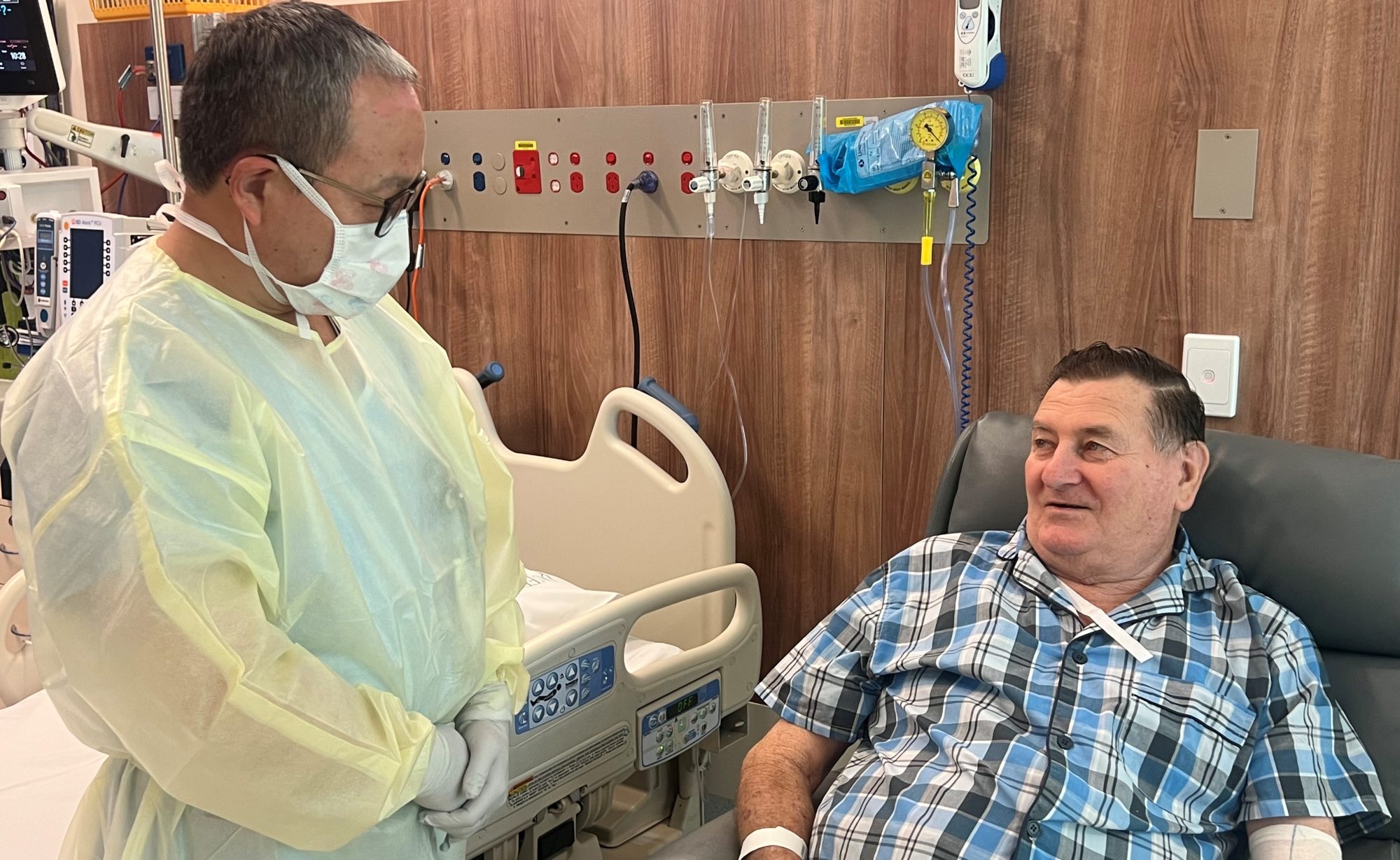
An analysis of the latest data on cardiac outcome performance in Queensland’s public hospitals has demonstrated that Mackay Base Hospital’s Cardiac Catheter Laboratory has one of the best success rates in the state when it comes to saving lives.
Director of Cardiology, Dr Michael Zhang said data from the Queensland Cardiac Outcomes Registry (QCOR) demonstrates that Mackay cath lab has a very high success rate in emergency coronary artery intervention for people suffering major heart attacks.
“The QCOR committee provided the analysis of the Mackay Base Hospital data from February 2020, which is when the Mackay Base Hospital’s cath lab expanded to round-the-clock care seven days a week, through to 31 October this year,” Dr Zhang said.
“The result is that 209 patients, who had an initial diagnosis of ongoing major heart attack by ambulance officers or ED doctors, were taken to the cardiac cath lab minutes after on-call activation, and we performed the emergency coronary artery intervention on 170 patients.”
“These 170 patients had heart surgery, reopening of the arteries, immediately, within minutes of arriving at the cardiac cath lab.”
“And in all that time, two years and eight months, we have only lost one patient.”
“This translates to a 99.4 per cent success rate.”
“These are people who are experiencing a massive heart attack, so these results are excellent, and I am very proud of my team of cardiologists, doctors, nurses, radiographers and cardiac scientists.”
Mackay Hospital and Health Service (MHHS) Executive Director of Medical Services Dr Charles Pain said it was an amazing result for the region’s community.
“This data provides us with an accurate picture of the work being done by our cardiac team and it is of the highest standard,” Dr Pain said.
“It demonstrates that people in our Mackay health region will get the same level of care as in a major city, and in fact Mackay is one of only two regional hospitals who currently provide 24/7 care.”
MIRACLE MAN
When John Lenahan arrived at the Mackay Base Hospital Emergency Department on October 31, things were not looking good for the 79-year-old.
He had suffered a massive heart attack his blood pressure was very low, and his life hung in the balance.
He was taken to the hospital’s Cardiac Catheter Laboratory by one of our highly skilled cardiologists to assess his coronary arteries. One of his major heart arteries was completely blocked. Within minutes the cardiologist had reopened the artery with two stents.
Mr Lenahan was then admitted to the Intensive Care Unit (ICU) due to the severity of his heart attack and the complications associated with this.
For several days, he fought for his life, and needed intensive care from the highly skilled clinicians in the ICU.
He suffered serious arrhythmias and multiple cardiac arrests and needed shock treatment to restart his heart 31 times.
Dr Michael Zhang, Director of Cardiology for Mackay Hospital and Health Service describes Mr Lenahan’s case as a “medical miracle”.
“Mr Lenahan’s case provides an amazing example of how we can save lives by having a cardiac cath lab here in Mackay, so we can immediately perform these procedures,” Dr Zhang said.
“We are guided by the principle that ‘time is heart muscle’ when providing this round-the-clock service.
“The time it takes to reopen the heart artery can mean the difference between life and death and that has certainly been the case for Mr Lenahan.”
FAST FACTS
- Heart disease is the number one cause of death in Australia
- The gold standard of care for patients who have had a major heart attack is to perform an emergency procedure to reopen the blocked coronary artery)
- Mackay is one of only two regional centres to be able to offer this level of cardiac care 24/7
- Since the Mackay Base Hospital (MBH) Cardiac Catheter Laboratory commenced 24/7 care in February 2020, 209 patients have benefited from round-the-clock services and 170 of them were successfully treated with emergency coronary artery intervention
- This is a 99.4 per cent success rate, and demonstrates Mackay’s incredible level of success in cardiac care


